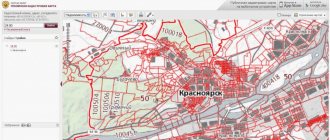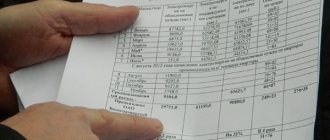Home / Real estate / Land / Categories of land / Agricultural land
Back
Published: 11/02/2017
Reading time: 10 min
3
788
Land plots intended for agricultural activities may have different purposes, which determine the types of permitted use of such plots. Possible activities on plots for gardening depend on the category of land to which they belong and the zonal distribution in the area.
- Vegetable gardening and horticulture
- Plots for gardening
- How to transfer a plot for gardening to individual housing construction?
- Documentation
- Procedure algorithm
- Changing the VRI of a city site
- How to register land ownership?
- Conclusion
What areas can there be?
When choosing land for use, first of all, it is necessary to determine exactly what the plot is being purchased for: for recreation outside the city on a fresh holiday, for cultivating agricultural crops, for building a small house - all this is important, since land legislation is divided into special categories .
The regulations of the Land Code of the Russian Federation clarify the possibilities for conducting various economic activities and constructing additional facilities on land, depending on the approved type of permitted use. For a more complete understanding, it is worth considering the features and differences of the most common land holdings:
- A garden plot of land is a plot allocated for the use of a citizen or acquired by him during a transaction for the cultivation of various agricultural structures, be it vegetables, berries, melons, etc. At the same time, the possibility of carrying out construction work on the construction of non-permanent buildings and economic facilities is being clarified. The right to build depends on the zoning of the area. In other words, a decision of local authorities or the provisions of other regulations may impose a ban on the construction of any structures on a specific plot.
A garden plot is a garden plot to grow vegetables on it
- A dacha plot of land is a plot of land allocated for use by a citizen or acquired by him for recreation in nature. In this case, the land owner retains the right to construct residential real estate with subsequent registration and receipt of a postal address. Also, such lands may be subject to permission to grow crops;
- A garden plot of land is a plot allocated for the use of a citizen or acquired by him for complete recreation in nature, as well as for growing crops. What is noteworthy is that for this category of land the right to build residential real estate is retained, but the possibility of registration in it is not provided.
Owners of garden plots are especially active in building various outbuildings on their property, including greenhouses for plants and summer houses for storing equipment and staying during visits to the plot.
A country summer house can be quite small
See also: Catalog of companies that specialize in landscaping work on sites.
Construction on land with this status
Before the entry into force of the new Federal Law “On Gardening, Vegetable Farming and Summer Housekeeping”, it is allowed to place on garden plots:
- non-permanent residential buildings;
- outbuildings to support agricultural activities.
It is worth noting that residential buildings can only be built on the lands of populated areas .
Read more about construction options on lands for “Vegetable gardening” in a separate article.
Legislation
From 2021, it is legally permitted to build only buildings that do not have a foundation . Since these buildings are easily dismountable, their registration as real estate is not provided.
Law 217-FZ, which replaces the current 66-FZ, is intended to streamline the use of garden land plots and eliminate existing legal conflicts that complicate an unambiguous interpretation of the legislation.
If a permanent residential building has been erected on your plot that has a VRI “Vegetable Gardening”, to legitimize it, go through the procedure of changing the VRI of the land.
What to look for when purchasing a garden plot
Concluding any transaction implies the need to study the terms of the agreement, possible consequences, as well as design features specific to this particular object:
- Special attention should be paid to the cost of a garden plot . In 60-70% of cases, the price tag for real estate is set at a level that does not correspond to real indicators. Therefore, before you start traveling outside populated areas to inspect plots, it is recommended that you first spend time studying the market using special online resources. In one or two hours you can get at least a general idea of price dynamics in a given direction, which will allow you to avoid the most blatant scammers.
- Of great importance is the presence of encumbrances on the site , which can be expressed in: seizure of real estate by bailiffs, use of the object as collateral, private or general easement. If you ignore this point, later after completing the transaction you can become the owner of a severe headache due to the problems that have piled up. For example, it is quite likely that only acquired real estate will be deprived as a result of the implementation of collection measures by bailiffs against the previous owner.
The owner-seller may no longer be the owner of the plot at all.
- It is also worth mentioning the option of purchasing land by re-registering a garden book . This method is considered not very reasonable, since in this case the buyer becomes a member of the gardening partnership, but not the owner of the plot.
Important! The direct owner in such circumstances is the district administration. Transactions of this kind are carried out in situations where the seller was unable to acquire full rights to the site, and therefore seeks to get rid of it for his own benefit.
Country construction - what is it?
Everyone puts their own meaning into the concept of “dacha”. For some, it’s just a vacation outside the city, unencumbered by agricultural plantings. Others build a residential house (mainly), outbuildings, and grow various plants, vegetables, and fruits on their plot of land. The Law “On Gardening, Gardening and Dacha Non-Profit Associations of Citizens” states that land for dacha plots is provided to citizens for the purpose of recreation. Consequently, these plots can be used for personal needs not related to commercial activities.
On such plots it is possible to build residential buildings, outbuildings, and grow various agricultural crops. At the same time, agricultural work at the dacha is not mandatory; it is used only to meet one’s own needs.
It is possible to build both permanent facilities suitable for all-season living and auxiliary buildings on dacha plots. In houses built on dacha lands, you can register for year-round living.
What rights does a citizen receive when purchasing a garden plot?
The list of rights is determined by land legislation and is expressed in the following positions:
- Disposal of mineral resources discovered on the allotment area. For personal purposes only. Their sale to third parties is not permitted without obtaining the appropriate permission.
- Construction of residential buildings, outbuildings and other objects that do not contradict the purpose of the site.
- Conducting various legally significant transactions with the site, be it: sale, donation, use as collateral, inheritance, etc.
- Growing crops on land.
- Carrying out irrigation, reclamation and other work to increase soil fertility without directly affecting neighbors’ plots.
Any plot of land requires care.
The entire harvest obtained from the use of the land goes to the owner of the plot. He can dispose of it as he pleases, including selling it.
Garden and vegetable garden in law
What can I say? Almost half of the country's population are gardeners and market gardeners. Those who do not do this professionally, and those who devote all their free time to gardening. And to no avail. But here’s the trick: not many, even among professionals, know that they have the right to do what to grow on their plot. And do they even have such a right?
Practice shows that many owners of hundreds of acres (not just six) simply do not know their legal rights and obligations. This is the richest soil for abuse and arbitrariness. Moreover, both from the bureaucrats and from their own friends and fellow gardeners.
The RG Library collection contains reference materials for those who are planning to purchase land - they will learn about the features of real estate transactions, the necessary documents and legal pitfalls in these transactions. The collection also talks in detail about participation in gardening associations. This part will be useful to experienced gardeners. That is, a useful practical guide has appeared for every owner of an estate and for a novice landowner.
At the end of the collection, as a New Year's gift, readers will find selected publications by the leader of the “Your Palisade” column in issues of the Russian newspaper “Week”, commentator on Radio Russia, author and presenter of the “Palisade” column on the Mayak-24 radio station, Alexander Khaburgaev.
We are publishing some interesting excerpts from this collection today.
Property right
Do you want to purchase a plot? It’s not difficult to find it: through advertisements, through friends, through specialized agencies... And now the site has been chosen and everyone seems to be happy with it, the time has come to pay the required amount and use it for your own pleasure, but... Who does this site belong to? What document certifies the right to it? The answer determines whether the transaction can be completed at all. You probably know that only real rights are subject to state registration in justice institutions. The main property right is the right of ownership. They often say: “I have a dacha,” “I built a house in a gardening partnership.”
It seems to imply that a person has the right to property. Then, after long investigations, it suddenly turns out, for example, that:
the land plot is seized without permission;
the plot was inherited, but the heir did not register it in the prescribed manner;
a brother, matchmaker or other close relative was a member of a dacha cooperative; after his death, the membership book was re-registered as the “owner”.
Or a generally egregious case: a person does not have any documents, but is registered somewhere by someone, pays someone something - and again, by his own admission, he is the “owner” of the plot and house.
And there are countless such cases: a person builds, plants, grows something, but in reality he has nothing. So let's assume that we need documents confirming ownership. Namely:
certificate of ownership of land (the text of the certificate must contain a phrase like: “provided for ownership”);
resolution of the head of the local administration on the provision of ownership of the plot (together with the cadastral plan of the land plot). It is unlikely that this will be the original resolution, since they are kept in the administration, but a certified copy will suffice;
relevant agreement - purchase and sale, barter, donation, etc.;
certificate of inheritance;
corresponding court decision.
It is possible that your counterparty will have other, more exotic documents in his hands. They have one thing in common - they can all be the basis for state registration of the presence, origin, termination, transfer, restriction (encumbrance) of rights to real estate and transactions with it. (By the way, if there are buildings on a land plot, for example, a garden house, a bathhouse, a garage, etc., then all real estate objects are subject to state registration.)
A gardener's membership book is not a document of title. Why do we focus on this? Because some “optimizers” (alas, there are also realtors among them) propose the following scheme: the actual transaction for the purchase and sale of a land plot is formalized by admitting the buyer as a member of a gardening partnership and issuing a membership card in his name. The seller of the plot is excluded at the general meeting and a buyer is accepted in his place. Elegant, but completely unacceptable. Neither the gardener’s membership card, nor the decision of the “omnipotent” general meeting gives rise to the new owner’s rights to either the land plot or buildings. Such a transaction does not entail legal consequences and can be challenged at any time within 10 years at the request of any of the parties or the heirs of these parties.
If the plot of land offered to you is not privatized, if the “owner” has no documents other than a membership book, then he has no right to sell it, and you have no right to buy it. You can only sell or bequeath what belongs to a person.
There is, however, a small exception - lifelong inheritable ownership of land. This right could have been acquired before the Land Code of the Russian Federation came into force (i.e. before October 2001), and it is retained. However, the provision of land plots to citizens on the right of lifelong inheritable ownership after the entry into force of the Land Code of the Russian Federation is no longer allowed. So, such a plot of land can be inherited after the plot has been acquired. Every citizen has the right to once and free of charge acquire ownership of a land plot that is in his lifetime inheritable possession.
In passing, it should be noted that the ownership of deceased people is not registered. So if the testator has not registered his right to the land plot during his lifetime in the prescribed manner, then the heir will most likely find himself in a difficult situation, fraught with litigation.
Not listed in the cadastre
According to Article 37 of the Land Code of the Russian Federation, only land plots that have undergone state cadastral registration can be the object of purchase and sale. If the land plot you have chosen has undergone cadastral registration, good. If this procedure is not carried out, then this means another delay. True, these are the concerns of the copyright holder, but I believe that you will also be interested in knowing what it is. In addition, the buyer may one day become a seller too.
State cadastral registration of land plots is carried out at their location without fail throughout the Russian Federation according to a unified methodology. Copyright holders or their authorized persons submit applications, title documents for land and documents on land surveying to the bodies involved in maintaining the state land cadastre. Boundary delineation is the work of establishing plot boundaries on the ground, securing such boundaries with boundary signs and determining their coordinates. Land surveying is carried out if the land plot has not previously been registered with the Cadastral Chamber.
State cadastral registration is carried out within a month from the date of filing the application and all necessary documents. Applicants are issued cadastral maps (plans) of land plots certified in accordance with the established procedure. It should be noted that no fee is charged to applicants for conducting state cadastral registration of land plots.
A contract without a price is invalid
It is possible that you will decide to contact a specialized organization to develop an agreement. Perhaps you want to play it safe and go to a notary. Or maybe you decide to do it yourself. One way or another, you should know about the features of buying and selling land.
The contract for the sale of real estate (including land) is concluded in writing by drawing up one document signed by the parties. Failure to comply with the form of the contract for the sale of real estate entails its invalidity. It is not necessary to go to a notary with such an agreement, especially since you will have to pay a state fee - one and a half percent of the amount of the agreement - to certify such a transaction. Plus for drawing up a draft transaction (because the notary will certainly find shortcomings in “someone else’s” draft) - one percent of the amount for which the transaction is concluded.
Of great importance is the determination of data that makes it possible to identify real estate to be transferred to the buyer under an agreement, including data that determines the location of the real estate on the relevant land plot or as part of other real estate. If there is no such data in the contract, then the contract will not be considered concluded.
The subject of the agreement should describe the land plot in strict accordance with the issued cadastral plan, indicate:
Name;
location;
land area;
cadastral number;
land category;
permitted use.
If there are buildings, structures or structures on the site, then this clause should also be reflected in the contract. When describing the land plot and the structures located on it, it is necessary to explain on what basis the seller owns the real estate and what title documents confirm this.
Price is another mandatory condition of a real estate sale agreement. If the contract does not contain a condition agreed upon in writing by the parties regarding the price of the real estate, the contract for its sale is considered not concluded.
The purchase and sale agreement for a land plot must be registered with the justice institution for registration of rights to real estate and transactions with it. Ownership of a plot arises from the moment of state registration.
The scary word “easement”
In some cases, your property may be subject to an easement. This is the right of limited use of the neighboring plot. This is the same real right as the right of ownership.
The procedure for its establishment in relation to a land plot is regulated by the Civil and Land Codes.
The Civil Code of the Russian Federation establishes that the owner of real estate (land, other real estate) has the right to demand from the owner of a neighboring plot, and, in necessary cases, from the owner of another land plot, the provision of an easement.
Encumbering a land plot with an easement does not deprive the owner of the plot of the rights of ownership, use and disposal of this plot.
An easement is established by agreement between the person requiring the establishment of the easement and the owner of the neighboring plot. An easement is subject to registration, like any other right to real estate.
If no agreement is reached on the establishment or conditions of the easement, the dispute is resolved by the court at the request of the person demanding the establishment of the easement. An easement can also be established in the interests and at the request of a person to whom the plot is allocated on the basis of the right of lifelong inheritable possession or the right of permanent use.
Unless otherwise provided by law, the owner of a plot encumbered with an easement has the right to demand from the persons in whose interests the easement is established a proportionate payment for the use of the plot.
An easement can be temporary or permanent. It is important that the implementation of the easement should be the least burdensome for the land plot in respect of which it is established.
The plots differ not only in size.
The law distinguishes three types of plots:
garden plot of land;
garden plot of land;
country plot of land.
A garden plot of land is a plot of land provided to a citizen or acquired by him for growing fruit, berries, vegetables, melons or other agricultural crops and potatoes, as well as for recreation (with the right to erect a residential building without the right to register residence in it and economic buildings and structures ). By the way, an interesting question: what if the site is not used for the specified purposes? Another common “horror story” of overly zealous gardening associations is the deprivation of the owner of an “abandoned” plot. Like, all this is simply done: if it’s not used for three years, take it away. And share.
This, dear comrades, is not easy at all. Indeed, if a garden plot of land is not used for the specified purposes for three years, then it can be seized from a citizen - in compliance with the procedure established by Article 35 of the Constitution of the Russian Federation and Articles 284 and 287 of the Civil Code of the Russian Federation.
Article 35 of the Constitution of the Russian Federation establishes that “No one can be deprived of his property except by a court decision. Forced alienation of property for state needs can only be carried out subject to prior and equivalent compensation.
Article 284 of the Civil Code of the Russian Federation says the following: “A land plot can be seized from the owner in cases where the plot is intended for agricultural production or housing or other construction and is not used for the corresponding purpose for three years, unless a longer period is established by law.
A garden plot purchased for growing fruit, berries, vegetables, melons or other agricultural crops and potatoes cannot be intended for agricultural production. The scale is not the same. The Federal Law “On the Turnover of Agricultural Land” directly states that its effect does not apply to land plots provided from agricultural lands to citizens for gardening.
As for housing or other construction, it is not garden plots that are intended for these purposes, but plots for individual housing construction. Moreover, housing and other construction may not be included in the gardener’s plans. He may be eager to enjoy the sunset while sitting in a hammock.
In addition, the three years mentioned above “does not include the time required for the development of the site, as well as the time during which the site could not be used for its intended purpose due to natural disasters or other circumstances precluding such use” (Article 284 of the Civil Code). Please note "other circumstances". It would not be an exaggeration to say that our whole life consists of them. For example, a sharp rise in prices for building materials or fuels and lubricants can stall construction for a long time. The introduction of a ban on the import of foreign planting material entails missing the optimal time for planting, etc.
In general, the very procedure for confiscating a garden plot of land due to its non-use appears to be very complicated.
A garden plot of land is a plot of land provided to a citizen or acquired by him for growing berries, vegetables, melons or other agricultural crops and potatoes (with or without the right to erect a non-permanent residential building and economic buildings and structures, depending on the permitted use of the land plot, determined when zoning the territory).
Previously, before the adoption of the Law on Gardening Associations, such plots were provided from state and municipal lands on the right of lease and temporary use. After the termination of the right to lease a garden plot of land, the temporary buildings and structures erected on it were subject to demolition by the owner of these buildings or at his expense without compensation for their cost. Now the Law on Gardening Associations allows for the provision of such a plot into ownership, lifelong inheritable possession or permanent (indefinite) use.
A dacha plot of land is a plot of land provided to a citizen or acquired by him for recreational purposes. It can be granted with the right to erect a residential building without the right to register residence in it or a residential building with the right to register residence in it and economic buildings and structures, as well as the right to grow berries, vegetables, melons or other agricultural crops and potatoes. In the case of a dacha land plot, it is possible to say that if a citizen has not built a residential house or residential building on a dacha land plot within three years, then the plot may be seized. However, again, you should remember about “other circumstances”.
Those wishing to purchase the collection should transfer 72 rubles for one copy (including payment for postage and VAT) to the following details: 125993, Moscow, JSC "Library RG", INN 7721017444, KPP 772101001, account number 40702810200000002764 to OJSC AKB "LES-BA" NK ", Moscow city,
c/s 30101810500000000694, BIC 044579694, OKONH code 87100, OKPO code 36557391.
In the payment order, be sure to indicate your exact return address with a zip code and the short title of the collection you are ordering: “You have decided to purchase a garden plot.” Attention to customers: when paying for collections through Sberbank of the Russian Federation, you should keep in mind that its local branches often do not transmit the names of collections and addresses of customers. To avoid delays in sending orders, please send letters to us with information: address, name of the collection, recipient, or report this by calling our phone numbers. Muscovites and guests of the capital can purchase the publication directly from the editorial office at the address: Moscow, st. Pravdy, 24 (metro station "Savelovskaya").
Editorial contact numbers: 257-52-47 (tel./fax).
A preliminary application can be made via our email address
Significant discounts are provided for wholesale buyers.
What responsibilities does a citizen receive when purchasing a garden plot?
The purchase of land involves the allocation of not only rights, but also predetermined responsibilities:
- use of the site in accordance with its intended purpose;
- payment of an amount for the right to operate the property, be it rent or tax;
- respect for the rights and interests of other tenants and owners;
- providing the competent authority with the information necessary to fill out the cadastre;
- preservation of geodetic and boundary marks established within the allotment.
The full list of responsibilities is specified in Art. 32 of the Land Code of the Russian Federation. The owner of the plot needs to understand that acquiring land ownership always implies responsibility to other people and the state. For non-compliance with the provisions, administrative penalties are provided.
A well-groomed area is also the responsibility of the gardener
How to register land ownership?
If the land for gardening is in a non-profit partnership, then it can be registered as ownership free of charge if the city authorities provided the territory to this partnership before October 2001. To register a plot of land, you will need the following documents:
- Certificate of right to use the site (membership in a partnership);
- Cadastral document;
- Copy of Russian passport;
- An extract on the presence of encumbrances from the legal register.
In the absence of a cadastral passport, it is enough to draw up a diagram of the boundaries of the plot and have it certified by the management of the gardening partnership to which the plot belongs.
A certificate of encumbrances can be ordered at the MFC by applying with a passport and paying a fee of 300 rubles.
With these documents, you must contact the municipal land management department and write an application for the provision of ownership of a plot for gardening.
Next, the applicant introduces himself, indicates his passport and contact information, after which he sets out a request for ownership of a plot for gardening, and indicates information about the plot:
- Address landmarks;
- Cadastral number;
- Land category;
- Square;
- Type of permitted land use;
- The type of right under which the land is exploited.
The application is considered within a month, during which employees of the land management department make a decision on whether to provide ownership of the plot for gardening or to refuse it.
If the plot is not demarcated, the land department preliminarily agrees on the transfer of ownership of the plot, after which it initiates cadastral work to establish boundaries and issues a cadastral passport for the plot. All demarcation costs are paid at the expense of the administration, in accordance with Art. 12 Federal Law No. 93 (law on “dacha amnesty”).
After the decision to provide ownership of a plot for gardening, the applicant submits a copy of this decision to the MFC, attaching to it :
- Cadastral passport;
- A copy of the Russian passport;
- Receipt of payment of the fee (100 rubles).
10 days after contacting the MFC, information about the owner of the plot for gardening is entered into the unified real estate register. If it is necessary to confirm ownership of a plot, the owner can order an extract from the Unified State Register of Real Estate from Rosreestr or the MFC.
You can read how to correctly register ownership rights in our article.
You can learn about all the nuances of allocating a share from common property in our thematic article.
How to change the type of permitted use
To transfer a plot from garden to dacha or from garden to garden, you will have to implement a rather lengthy and not always simple procedure. To initiate the process, you must send a request to the land department in the local administration. It is important to indicate the following items in the content of the application:
- cadastral number of the allotment;
- current category of the site and planned;
- reasons for making changes;
- information about the rights to the site with clarification of the presence of encumbrances.
- This information must be supported by documents, so the following will need to be attached to the application:
- civil passport of the person acting as the applicant;
- an extract from the Unified State Register of Real Estate – can be obtained at the branch of the Multifunctional Center or at the Rosreestr office;
- cadastral passport - issued at the cadastral chamber or at the department of the Multifunctional Center;
- an expert opinion on environmental indicators is not always required, so before requesting it is important to clarify the need for it with department employees.
Plots for gardening
Vegetable gardening is one of the types of permitted activities on land plots belonging to the category:
Plots for gardening can either belong to citizens as property rights, or be provided to them by local municipal authorities on a long-term lease.
According to the All-Russian Classification of Types of Permitted Activities, in areas with a designated purpose, gardening can be carried out:
- Growing vegetables and potatoes;
- Growing melons;
- Growing berries and fruits;
- Construction of non-permanent outbuildings;
- Installation of temporary cabins for living without a foundation.








